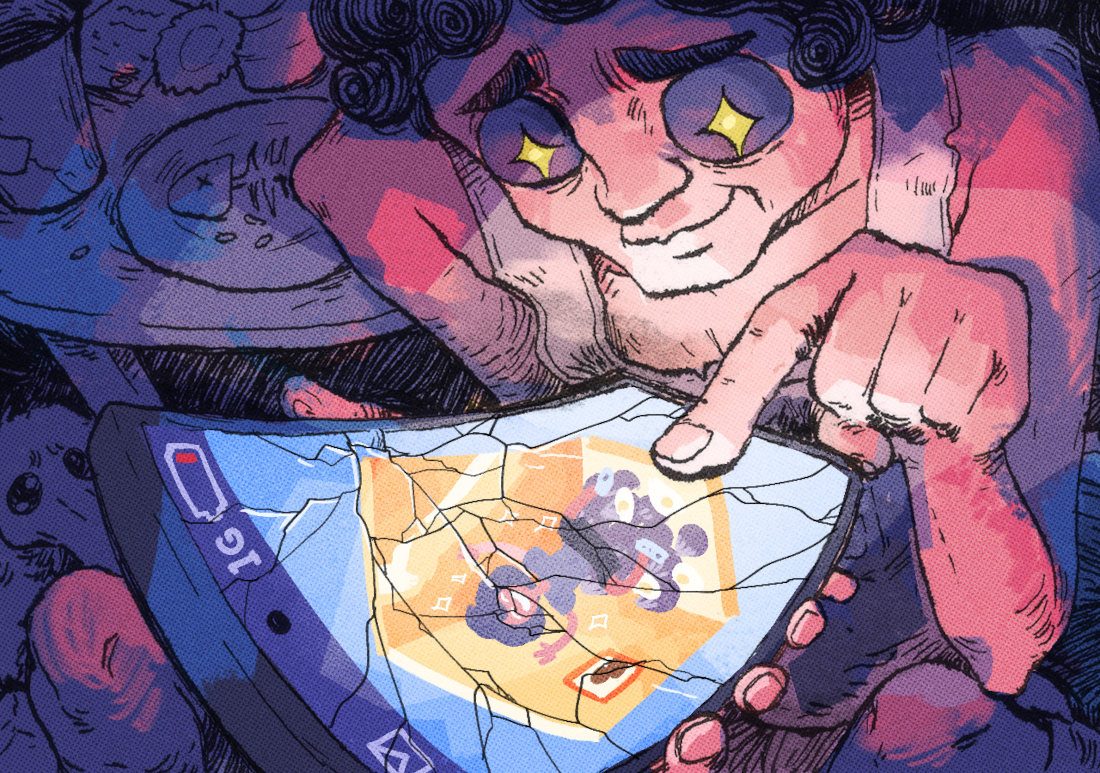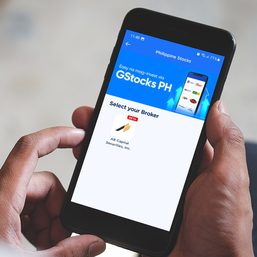SUMMARY
This is AI generated summarization, which may have errors. For context, always refer to the full article.

In between my daily tasks at work on a Tuesday morning, I remembered seeing stories of 3D-looking avatars with a QR code from my friends and acquaintances in my social media feed, directing followers to try a social networking app called Bondee, a virtual space created by Singapore-based tech startup Metadream.
True to my nature as a chronically online person, I jumped on the trend as I made an avatar, one that resembled how I look in real life. I created a room that I’d be proud to call my own, updated the app with what I was up to at the moment through animated statuses, and interacted with the avatars of my friends in the app.
In short order, Bondee took the top Philippine trend on Twitter and the app stores over the next few days. Almost everyone that I knew – whether from school or work – had downloaded Bondee onto their phones.
It’s gotten big enough that meme-loving Filipinos on social media would turn their rooms into registered businesses and fast food restaurants, among others. We’ve even seen corporations hopping on the Bondee bandwagon.
The hype around the app also got me thinking about similar apps that were big in the past. The sentiment led me to post a tweet about how Bondee made me miss mobile games such as Neko Atsume and Adorable Home.
One social media user even shared his nostalgia for the now-defunct Facebook game Pet Society as Bondee rose in popularity.
That shared nostalgia made me wonder why these interactive apps held such appeal.
Samuel Cabbuag, an assistant professor in sociology at the University of the Philippines Diliman who specializes in digital cultures, says these platforms “afford us to create our own spaces as a form of communication” as users create a “more visible community” with their contacts through activities within a specific app.
“It is both a nostalgia and a new thing for users as it makes us recall previous apps and platforms but at the same time offers us something ‘new’ to do on our mobile phones such as designing our own flat,” he told Rappler.
However, the more curious I became, the more these questions also started popping up in my head: Can we actually afford to have many options of clothing to wear everyday? Would we be able to afford in taking care of a lot of animals? Can we make our dream rooms or home into reality? Can we be a walk away from our loved ones?
The answers always lead to one answer – not yet. In reality, our road to figuring out the ins and outs of adulting and the future ahead could get murky as we are facing an economic crisis in this post-lockdown world.
Escape from reality?
According to 2021 figures from Southeast Asian online shopping aggregator iPrice, Manila is the third most expensive city in ASEAN with an estimated cost of living at P50,798.
That figure has since surely increased in the past year as the Philippines has been dealing with rising inflation to as high as 8.1% in December 2022, leading to an increase in prices of basic goods such as eggs and onions, among others.
There were also fare increases to accommodate soaring costs at a time when commuters continue to suffer from one of the world’s worst public transportation systems.
But Filipinos are not the only ones feeling the effects of the rise in the prices of goods. Deloitte’s 2022 global survey on Gen Z and millennials notes that around a third of Gen Zs (29%) and millennials (36%) respondents from 46 countries are most concerned about their cost of living.
So how does that relate to the virtual world of Bondee and the games that I mentioned? These platforms appear to provide users with a momentary escape away from the harsh reality of the modern world.
In quote tweets referencing my post, social media users said that Adorable Home would make them feel “normal.” They recounted their memories of it and the “utopia” they built in the game.
Andrew Ty, an instructor in communications at the Ateneo de Manila University, says “the possibility of using our encounters with these to immerse and/or to escape” is part of a recurring element behind the appeal of these apps.
“I think what ‘virtual worlds’ present is precisely that on top of having something to do is somewhere to do it in….People are drawn to these [platforms] because they know many others have been, and the joy is in connecting with that community,” Ty said.
He also shared the importance of how our sensory perceptions draw people to these virtual world apps.
“Those apps are well designed. Very pretty to play. So that draws people in. ‘Oh so cute. What’s that?’ is a bigger draw than ‘Oh, wow, this is an escape from my world’ or ‘Oh wow, NFTs and the metaverse are the future,’” he adds.
However, Cabbuag argued that while some may call these platforms a form of escapism from what is happening in the real world, it also “allows [users] to hope that one day everyone can afford the homes the way they want to be.”
“It provides them a vision of what a liveable place looks like, albeit limited to what the app allows them to place inside,” he added.
But the metaverse nature of Bondee could blur the lines between the virtual world and real-life economics.
NFT concerns
As Bondee grew in popularity, many users were concerned about the integration of non-fungible tokens (NFTs) into the app.
According to the app’s privacy policy, users can purchase in-game currency called B-Beans to be able to buy NFT items on the platform. This part of the policy has since been removed in its latest update on January 29, even if social media users were able to catch this detail.
Ty says that since these apps are accessible to the general public, they can “have a kind of control about how accessible they are.”
“Something like Bondee is also freemium, so it’s free to download and play, with optional in-app purchases that users may or may not take. If they choose not to spend on it, then the game becomes more casual, literally and figuratively less of an investment,” he adds.
Cabbuag also explains how platforms like Bondee “allow users to be more creative in how we use social media as compared to its early stages” as the internet transitions to Web 3.0, promising a vision of a decentralized and open Web through developments in artificial technology and the metaverse.
“For me, it’s really how everyone rethinks about using platforms with these new ways of economic transactions as this is slowly becoming the norm now with most apps,” he adds, noting how social media platforms such as Twitter have integrated NFTs into their site.
However, the UP assistant professor is also alarmed at how this integration could cause trouble with users as “everything can be sold and copyrighted online.”
“It must be balanced with how users can freely use any content online,” Cabbuag says.
As Bondee continues to use a tried-and-tested formula to attract users to its promise of metaverse bringing people together, users may want to question how their consumption of such online platforms ties in with the complex issues of the real world. – Rappler.com
Add a comment
How does this make you feel?









There are no comments yet. Add your comment to start the conversation.